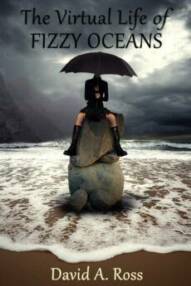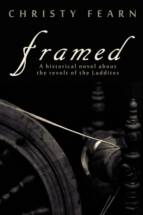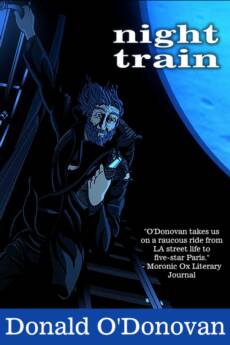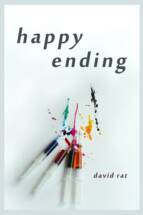Novel Excerpt
"Breaking Up Is Never Easy, I Know"
from the upcoming Open Books novel
Mameluke Bath
by
Andrew Asibong
Moronic Ox Literary and Cultural Journal - Escape Media Publishers / Open Books Advertise your book, CD, or cause in the 'Ox'
Novel Excerpts, Short Stories, Poetry, Multimedia, Current Affairs, Book Reviews, Photo Essays, Visual Arts Submissions
My mother went to Iceland on New Year’s morning. I tried to stop her from leaving, but she faced me off, lifting her skirts and baring her teeth.
“Don’t stand in my way, Christie,” she howled, blank eyes streaming cold grey tears. “I’m fifty-nine years old. It’s my last stab at the real thing. And a northern wind is calling me.”
Three months earlier she’d met a hulking Icelander named Jón, on an Internet site named NOR-DIKK. This was a social forum of sorts, aimed at white-hot Scandinavians and their steamy Northern mates. Furious, I’d protested: Iceland wasn’t even a real part of Scandinavia! But my mother didn’t care. She’d never been one to let details get in the way of a good ethnic fantasy. And besides, this was a question of roots.
Her own father was purportedly descended from Ulrik Christian Gyldenløve, an eighteenth-century Count of Samsø. Never having been lucky enough to meet this vaguely royal daddy, my mother had spent an entire lonely childhood dreaming of his fairytale Danish forebears. Her little-girl fancies were all the more heartbreaking for having played themselves out against the tawdry backdrop of crumbling, poverty-stricken Marseilles, where her own mother Leda, a deranged Alsatian waitress, had eventually settled. To her lifelong chagrin, my mother wasn’t just depressingly proletarian, she was also garishly, unspeakably Gallic.
She’d fled north across the Channel on her eighteenth birthday, and had been drifting in and around England’s East Midlands (and, briefly, its Peak District) ever since the early 1970s. It wasn’t exactly the court of Christiania; but at least it wasn’t France. It would do; at least until something better came along. For in her stubborn, frosted daydreams, my mother glowed with all the chilly radiance of Greta Garbo in blonde-face. And once my beastly father—himself as remote from Nordicity as it was possible for a human being to be—had at last abandoned us, I began to hear the ancestral snow-cry mumbling in her veins, stirring from its brief decade of zombified slumber. The mumbles turned into shrieks, each decade louder and more frenzied than the last, demanding what my mother’s heart had always longed for more than life itself: the coming of an ice-man.
Jón had been living in St Pauly, the largest city in the East Midlands, just short of a year, dabbling as a DJ and recording artist in garage and dancehall. His ultimate goal was to bring what he called “a certain Viking rigour” to the dying days of the English grime scene. On his NOR-DIKK profile, he described his artistic vision as a fusion of Dizzee Rascal and Strindberg’s Ghost Sonata. But by August he’d given up all hopes of transfiguring St Pauly’s urban sounds, and was heading back to his native Iceland, to take over his aged father’s fishing business in Höfn. About to turn forty (and having exhausted much of his volcanic island’s eligible female population in punkish youth and young manhood), Jón was keen to go back home with a foreign bride in tow. If he and the woman could start a family together, so much the better. If not, they’d adopt three babies from Greenland.
Closer than ever to madness after forty English summers, my mother was ready to kill for a new life. She wanted renaissance and she wanted it now: the endless, wintry dreamtime that would allow her—at last!—to explore her mysterious septentronial heritage. She signed up to NOR-DIKK one Friday evening in September, after the wine- bar rhapsodising of one of the nameless office slatterns. The giggling secretary had shown my mother a picture of Freddy Ljungberg’s Swedish cock in Calvins. After that, there was no stopping her. The next morning, quivering with excitement in front of our moribund iMac, she typed an obscene phrase into NOR-DIKK’s search engine. There was no point being coy, after all, chuckled the webmasters. NOR-DIKKERS looking for an instantaneous match should state their preferences without shame! My mother might just as well have rubbed the genie’s magic lamp. Jón’s sexy ‘Peer_Gyddy’ profile popped up at once, a virtual frog prince in our own front room!
It was an abracadabra moment. My mother screamed with joy, drinking in the wonder of her own erotic conjuration. And so it was that Jón and Hélène found each other. It was like a slice of electronic hoodoo, or an ancient Norse saga. They concurred at the end of November that it was a love-match. But instead of grime boys or dancehall queens, a choir of snow-white Nordic voices were chosen to croon over the advent. They streamed nightly from Hélène’s massive Sennheiser headphones (Jón’s predictable first gift), an icy affliction, an endless procession of exclusively Scandinavian minstrels. Stina Nordenstam and Håkan Hellström, Marit Bergman and Lykke Li: these were the new hearth gods of our modest English home, a mocking, blond brood of pugnacious elves, musical progeny of the real Jón, an essentially conservative North Man, whose loquacious odes to blackness seemed to have vanished clean into cyberspace as suddenly and irrevocably as he himself had burst forth into the real world.
The soulless troupe of snow-pixies enjoyed a more intimate kinship with my mother than I could ever have dreamed. Throughout December, Hélène rolled madly on our sofa, clasping the silver headphones to her head, positively orgasmic in the ecstasy of her sudden Scandinavian belonging. These were her people. They’d finally come. And no matter how desperately I longed to join them, I was eventually forced to admit that, when all was said and sung, these musical Vikings would never, ever be mine. As for the whole “Afro-Nordic scene” which my mother, forever quoting Jón, had so breathlessly evoked at the start of the courtship in an attempt to reassure me, it was just so much nonsensical hot air, a multicultural fantasy dreamed up by the Vanilla Icelander in a vain attempt to sound post modern and hybrid and cool.
“Jón gets me, Christie,” wailed my mother now, crumpled in a lachrymose heap at the kitchen door, her two Sugarcubes-themed suitcases quite exploded around her, and her skirt still hitched up at her waist. “He’s my Zeus, my swan-god, my Venus as a boy. You can’t give me what he does. It’s just not in your genes.”
And at that Hélène rose, smoothed her velvet skirt back over still shapely white legs and knee-high black boots, re-locked the two exploded suitcases, and walked out of our house forever. I didn’t try to stop her. I didn’t cry. My heart was broken, but there would be no second Troy.
I ambled, bogle-like, towards the kitchen, where broken pieces of crockery and handfuls of Hélène’s dyed yellow hair still littered the blue-tiled floor. I boiled the kettle, oblivious to these alarming indices of my recent distress. Whatever had happened, she’d deserved it. All I needed to calm my nerves now was a strong, sweet cup of Tetleys. Luckily, a mug had survived the ice storm. I sat down at the table, gulping my tea, trying to ignore the family of white, hippo-like troll-creatures that danced around the mug (for it was one of my mother’s beloved Finnish Moomins collection).
I had to think.
Fragments of china jagged into my feet and elbows, starting off moderate rivers of blood. I didn’t care. I pondered one question, and one question only: not how I would find money to eat (spaghetti was still cheap, and I’d never been much interested in any food besides pasta) but rather how I would pay for the final year of my crippling studies. After all, these were austere times, as people never stopped repeating, fish-eyed and unreflective. I didn’t give a damn. Austerity or no austerity, I had unspeakable things to say in this doctoral opus of mine. And my mother’s fresh acts of betrayal had made me all the more determined to say them. Thatcher was nine months dead, but no revolutionary baby had slipped from her corpse as we watched the old witch burn. It was up to me. When the New Year snows began to melt, I started seeing Judd, twice a week, for attachment therapy and counsel, at his rooms in Mameluke Bath. I know I had no money. I know. But something had changed. My life had finally become unliveable. I needed some warmth and I needed some truth and I was prepared to die for just a moment to snap at the heels of either one of those hard-to-get bitches.
On a sunny Friday afternoon in late September, exactly a month after my thirty-ninth birthday, I arrived at the Master’s office on the first floor of the North Wing at St Pauly University campus. I’d been summoned to discuss that most delicate of questions: the long-delayed payment of my tuition fees. Someone must have been briefing the Master on how to crush a louse humanely, for just seconds into our interview I noticed that his gaze—usually so cutting and aloof—today seeped a distaste that was almost moving in its restraint. As I read the requested one-page abstract that outlined my area of research, he peeped coyly over me, a look of mild confusion inflecting his botoxed visage. I glared back at him, trembling: let him dare accuse me of irrelevance.
“Talking animals,” the Master repeated softly.
He beamed with compassion. I wanted to box his ears. Instead, I clutched my sweaty, scribbled abstract ever more tightly against my chest. To me, it was a grimoire.
The Master swallowed a snigger.
“What?” he coughed. “Like Danger Mouse? Garfield?”
“No,” I muttered, already terribly weary. This interview was senseless. “As I’ve just explained to you, and as I’ve stated in my abstract, I intend to analyse the articulate animal in literature.”
The stifled snigger became a smirk. Was this a sign for me to go on? I had less than nothing to lose.
“There are many, and they tell us something crucial. I want to find out what it is.”
“I see.”
He rocked back on his executive swivel chair, designer glasses pushed up on liver-spotted slap-head, skeletal fingers pressed together in vacant non-reflection. God, I hated him. What a slimy kaw-kaw, this grey-skinned, wraith-like provost! Even before floating, scum-like, to the top of St Pauly’s bath water, he’d been a meat-headed cunt. And now he’d spied my fissure, smelt my guilt, slipped right in, and made himself at home. He grinned and slobbered inside me, his defenceless host, with all the sleazy cheer of a liberal democrat.
He still hadn’t asked me to sit down. My throat and neck burned. And now the Master—Professor Brian Ferry, O.B.E.—began to lecture me about the state we’re in.
“Forgive me, Christie. I don’t mean to poke fun. But we must be sensible! You have every right to investigate the chatter of cartoon beasts. For that matter, you could train as—oh, I don’t know!—as a voodoo specialist if you wanted to. But you don’t have the right to ask taxpayers to fund such self-indulgence. Not in a time of austerity. You have to take personal responsibility for that kind of thing.”
I remained silent.
“Your mother left you enough money to last you until when? The spring?”
I would not engage with such insulting abuse.
“And are you supplementing those funds with extra work?”
I would explain nothing to this hideous, Etonian bugul-noz.
“Are you considering all the job options? You can’t afford to be picky.”
I waited for him to hang himself with his own rope of neo-liberal moronism. It was too late for me now, anyway. All my ships had sailed.
“How much rent are you paying in town? Was that a wise move? It can’t be cheap near Opoponax Gardens.”
It was all I could do to stop myself from screaming out loud at his arrogance. Where the fuck did he live? In some ghetto hovel?
“Christie, you’ve toed the line since Hélène moved to Iceland. Yes, you’ve been truly humble. You were always such an uppity little girl.”
I flushed, brushing my sleeve across suddenly prickling eyes. The Master paid no attention.
“You’ve worked hard for St Pauly: the telephone fundraiser in February; those subjunctive tutorials over the summer; the admin work, the cleaning… Believe me, it’s all been noted. It’s all been noted.”
“Thank you,” I growled.
“Which is precisely why you’ve come this far. On loans, political correctness and dollops of goodwill. But Christie: enough is enough! You’ve been working on this interminable thesis for three years now. And before that you did two M.A.s!”
“I’ll take out another loan.”
“You’ve taken out all the loans, Christie! There are no more loans.”
“I’ll do the subjunctive tutorials for free.”
“Nobody wants the subjunctive tutorials, Christie! Nobody needs them.”
I took a deep breath. I knew what I was doing.
“I’ll feed the lice.”
At this the Master raised his eyebrows and nodded approvingly.
A spontaneous game of rounders had broken out among undergraduates in the late September sun. Shouts of clear, upper-class enjoyment rose to office level, pouring cleanly through the open windows. The Master wiped his mouth and swivelled his chair around to gaze out at the sporting students. He seemed bewitched by their simple cries of fun.
And then I—the diminutive animated animal that I am—let out a groan so forlorn that the Master jumped, then rolled back from the window with a little bleat of dismay. He looked at me and sighed as I approached the enormous desk, grasping each side of it with dripping hands. I was ready to play the only card I had left.
“When my mother left, Master,” I began, trying in vain to connect with fleeing, unfocussed eyes, “you promised her I’d be taken care of. You told her I’d be safe till submission. Well, I’ll submit this spring! And then I’ll be gone! I’ll get a post in America, at N.Y.U., at U.C.L.A.! They’re crying out for people like me there. I’ll be out of your hair; I’ll leave St Pauly forev – ”
The Master waved me silent.
“Your mother cared for you a great deal, Christie. I’m not sure you realise the sacrifices she made for your education.”
Nine months after Hélène’s traitorous New Year’s Day flight (with not a peep from her since), I was beginning to lose patience with the ceaseless stream of St Pauly boggarts who never tired of telling me what a wonderful woman my mother had been. And if the Master was now going to pretend that she’d been fucking him all those years in his office on my account, well, he could just—
“The nicest secretary I’ve ever seen at St Pauly,” he gasped. “In any department. It’s hard…you don’t…”
The old grey nuli’s enthusiasm faltered momentarily for the building blocks of language. And then at last it came. The system-king’s ultimate accolade:
“She was the most extraordinarily efficient administrator.”
The Master shook his head and loosened his tie, splashing me indiscriminately with the sudden seepage of horny nostalgia. I dug my fingernails into my palm, hoping against hope that, no matter how unjustified my mother’s saint-like legend, her former lover might perhaps now find himself so violently felled by the moment of erotic recollection that he would be moved to perform one last act of generosity.
But instead all he said was:
“It’s remarkable how unlike Hélène you are. It’s no surprise, of course, given the way your father was. I’ve seen the photos.”
I unclenched my fists, and prepared to dissolve. It was all over for me now.
But wait: maybe something had changed. The Master seemed to have softened. He rose from his chair and stood in front of his desk, pink-shirted arms lightly folded. He smiled. I backed away, clasping my abstract even more religiously to my ever-tightening chest. The Master took a deep breath, removed his glasses and shut his eyes tightly in fervent concentration, as though about to recite a terrible prayer.
Then he spilled it:
“You are the daughter of the only woman I’ve ever loved, Christie, no matter how ashamed I am to admit that. And, no matter how little you resemble her, Hélène cared about you. She told me that time and again, in this office, lying naked on this desk, my seed trickling down her creamy thighs.”
He absent-mindedly stroked the desk behind him, as if it were a favoured magical cat. And then he suddenly opened his pale eyes very wide onto my appalled and reddening face.
“Oh, how sweet! So you do change colour when you’re moved! I’d always wondered. Listen, Christie: I’m going to give you one more chance. One more chance to prove your activities useful.”
I squeaked with relief, launching into a torrent of hysterical, heartfelt gratitude. But the Master held up his hand again.
“Not so fast, Christie! You’re getting ahead of yourself! You always do.”
What did the mother-fucking moloch want from me?
I tried to imagine what it would feel like if he suddenly stuck two of his cold white fingers down into my bra, or lifted one of those tiny black leather feet up and into the crack of my skirt. I would deal with it! I would simply pretend that he wasn’t a real person, that this was a dead man molesting me: a phantom, a ghost. Hadn’t I always known that some greasy-haired demon with dirty fingernails would sail in at the end of my thirties to spoil and defile me forever?
“Now don’t worry, Christie,” he chortled reassuringly. “It’s nothing nasty. I just want to ask you two very important questions. The questions relate, in a sense, to the important issue of research ethics.”
“Whatever,” I said, wrong-footed.
“My first question is this. Are you listening carefully?”
“Yes.”
“Right then, here goes. What exactly do you give back to this society? To the community of St Pauly?”
“That’s easy!” I all but sang. “I’m a responsible citizen! I write regular film reviews for the St Pauly Piper. I’ve volunteered at Crisis every Christmas for the past five years…” (I flushed with excitement as I prepared to deal him my ethical trump card, my pièce de rèsistance, the cherry of charitable goodness on top of the whole Big Society cake) “…and next Tuesday I shall take a taxi out beyond the Elysian Fields Estates to begin volunteer work as a Mentor to one of the new batch of asylum seekers!”
I beamed, waiting for the Master’s cry of congratulation: after The PhD and Therapy With Judd, this was my Third Big Plan.
But instead he looked quite shocked.
“Asylum seekers? Mentoring? Why on earth would you waste your time on such an asinine scheme? It’s a wonder St Pauly Council’s still got the funds for such bleeding-heart bunk.”
I sighed. Of course I should never have hoped to convey the genuine excitement that the mentoring project contained for me. Not to this business-like ghoul. Already he looked as if he might be preparing to throw me out, all patience curdled, those misty-eyed memories of acrylic afternoons spent fucking my mother exhausted for today.
“Master, please! Your second question?”
“What?”
For the first time in our meeting he sounded irate.
I blundered on regardless.
“You had a second question for me. On research ethics? I’m sure I can give you the right answer, I’m sure I can!”
“Oh, you are, are you?”
He’d put his amused look back on again.
“All right, then, Miss Smithkin, riddle me this: of all your bestiary of ‘literary’ talking animals, which is your favourite?”
“Oh, that’s easy!” I cried, delighted at such unexpectedly intellectual engagement. “It’s Berganza!”
“And who, or what, pray tell, is Berganza?”
“Berganza is one of the two talking dogs in Cervantes’ ‘Colloquy of Dogs’,” I explained breathlessly. “He wanders around seventeenth-century Spain, observing ordinary people: how they talk, how they live. Sometimes he intervenes: barks, bites. His mother was a witch, and she was the one who turned him from a boy into a dog. So in fact he’s half-human (or fully human, really), but he’s still a dog. A dog that can talk! He ends up working in the Hospital of the Resurrection, and that’s where he tells his life story to another dog, Scipio. Scipio might be his long-lost brother, or he might just be his friend. A soldier who’s dying of syphilis overhears the whole doggy dialogue and writes it all down.”
“How completely bizarre!” cried the Master, clapping his hands in delight.
“Isn’t it?” I replied, shoots of gratitude suddenly blooming in my heart.
The Master had just engaged with me. He’d asked me a serious question about something I genuinely felt to be real.
“And does this dog Berganza speak in English?” he went on, still palpably intrigued.
“Well, no. As I say, the story is by Cervantes, so the characters speak in Spanish.”
“And can you speak Spanish, Christie?”
“Yes, I can! I got an ‘A’ at A-Level.”
“Very good! And can you bark like a dog, Christie?”
“I beg your pardon?”
“A simple question: Can you bark like a dog? Like your hero Berganza barked? When he wasn’t busy chattering out his life-story in Spanish, presumably…
“I didn’t say he was my hero, I just happen to find his observ—”
“Answer the question, Christie.”
“I already told you I’d feed the lice…”
The Master smiled.
“Perhaps, in due course, we shall ask you to make good on that generous offer. But, for now, I’d simply like you to bark like Berganza. If it’s good enough to spend precious money researching, then it’s good enough to put into practice. Or are you admitting now that your research is impractical?”
He was insane.
My mother had been fucking a complete lunatic since 2002. This same lunatic was one of the most influential men in the country. And he was commanding me to bark. If I wanted to have even a cat’s chance in hell of being allowed to pursue my precious research, of finally becoming a doctor of philosophy, I would have to bark for a madman.
I barked.
Like no dog on earth, like no wolf, no quoll, I barked.
I howled and growled and woofed and whined.
Absent was the shame, the embarrassment, and the sheer vicarious cringe at how weird the Master’s desire was. There was no point puzzling over it. When people try to reduce you to the level of beast, they invariably do so from a place of deep and inexplicable depravity.
Nor did I have time to wonder how I was going to explain my bestial acquiescence to my kind but judgmental head-doctor, Judd, the following week in Mameluke Bath. I’d figure that one out over the weekend.
So, I barked.
I don’t know for how long.
And, as I began to drool great gobs of canine saliva I never even knew I had in me, all the way down my new burgundy H & M blouse, and even as far down as my Oxfam denim skirt, I could dimly make out the Master’s gigantic, twitching shape. He nodded maniacally against the yellow haze, arms still tightly folded, as he danced and rocked on the massive wooden desk. For one brief moment I thought I saw him rub the area where his wrinkled penis must have lurked inside his trousers.
And then it was over.
The Master clambered down from the desk and returned to the executive swivel chair, its back now turned toward us, bored by our spectacle of humiliating intimacy. Looking out the window instead of sitting, he now seemed more interested in the game of rounders taking place outside on the lawn.
“All right, Christie,” he snapped without facing me. “That’s enough. You can have one more semester. I give you until February to submit your final thoughts on the ethics and aesthetics of Danger Mouse.”
He sat down again and casually poured himself a glass of sparkling Mameluke Bath. The sight of that stuff has always made me want to heave. I noticed now that dozens of empty M.B. bottles littered the office: their ridiculous m logo glowed fluorescent-green in every plush corner of the room. The Master turned his back on my involuntary retches: he was lost again in the game of rounders, and in the noisy slurping of gratuitously expensive Peak District spring water.
I picked up my briefcase and left the office without a word, clutching tightly to the abstract in my other hand. It was crumpled now, and predictably sweat-sodden, but it was nevertheless intact. I bent down outside the door to slip it into my briefcase. Snapping the case shut I felt strangely victorious. The long queue of student-debtors that lined the corridor outside the Master’s office (and stretched all the way down the interminable staircase leading to North Wing’s exit) stared at me as one, incredulous, cow-like.
I strode proudly past them, my head held high in a cloud of triumph. What did they know about anything? They weren’t as special as me. They weren’t going to leave that building alive like me. And was even one of these pretentious wretches fortunate enough to have been granted a rendezvous, beyond the Elysian Fields Estates, that coming Tuesday with a desperate asylum-seeker by the name of Mukelenge Mabanckou?
Dr. Andrew Asibong was born in the English Peak District in 1977, grew up near Liverpool, and left home at the age of 17 to study Modern Languages at Oxford University. He has since lived in Paris and Nottingham, but settled in 2006 in Haringey, North London, where he is an active member of the local community, participating in a film collective, a non-hierarchical solidarity network, and a radical reading group.
Mameluke Bath is his debut novel to be published in Fall 2013.
Big Green Bookshop
will host a book launch event for Mameluke Bath by Andrew Asibong later this year. Watch their calendar for event date and time. If you are in the London area,
stop by the event to meet Dr. Asibong and check out the store's unique inventory!
About Big Green Bookshop
Tim West and Simon Key opened the Big Green Bookshop in March 2008, after the big chain store where they worked in Wood Green closed, leaving the area with no dedicated bookshop. After much joy and much frustration and a huge amount of help and support from the local community the shop opened its doors to fanfares and cheers and a cake or two.
With over 35 years of book selling experience between us and over 47 cups of tea and coffee inside us, we’re trying to offer the kind of bookshop that we’d like to visit ourselves, a bookshop with a thoughtful range of titles, friendly knowledgeable staff and some cracking gems that surprise and excite us. We love our books and we’ll do our very best to make sure that when you leave you’ll look forward to coming back again.
If you want to know more about us and the shop, you can read our blog, which will hopefully keep you mildly amused and relatively interested at the same time.
titles you may enjoy.
Click cover to learn more about the book.
© Moronic Ox Literary Journal - Escape Media Publishers / Open Books










